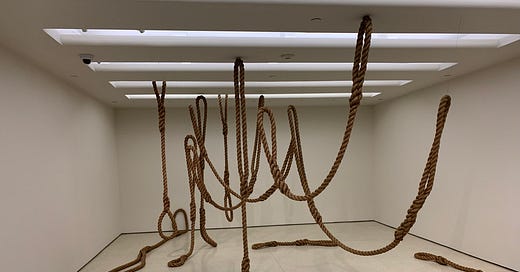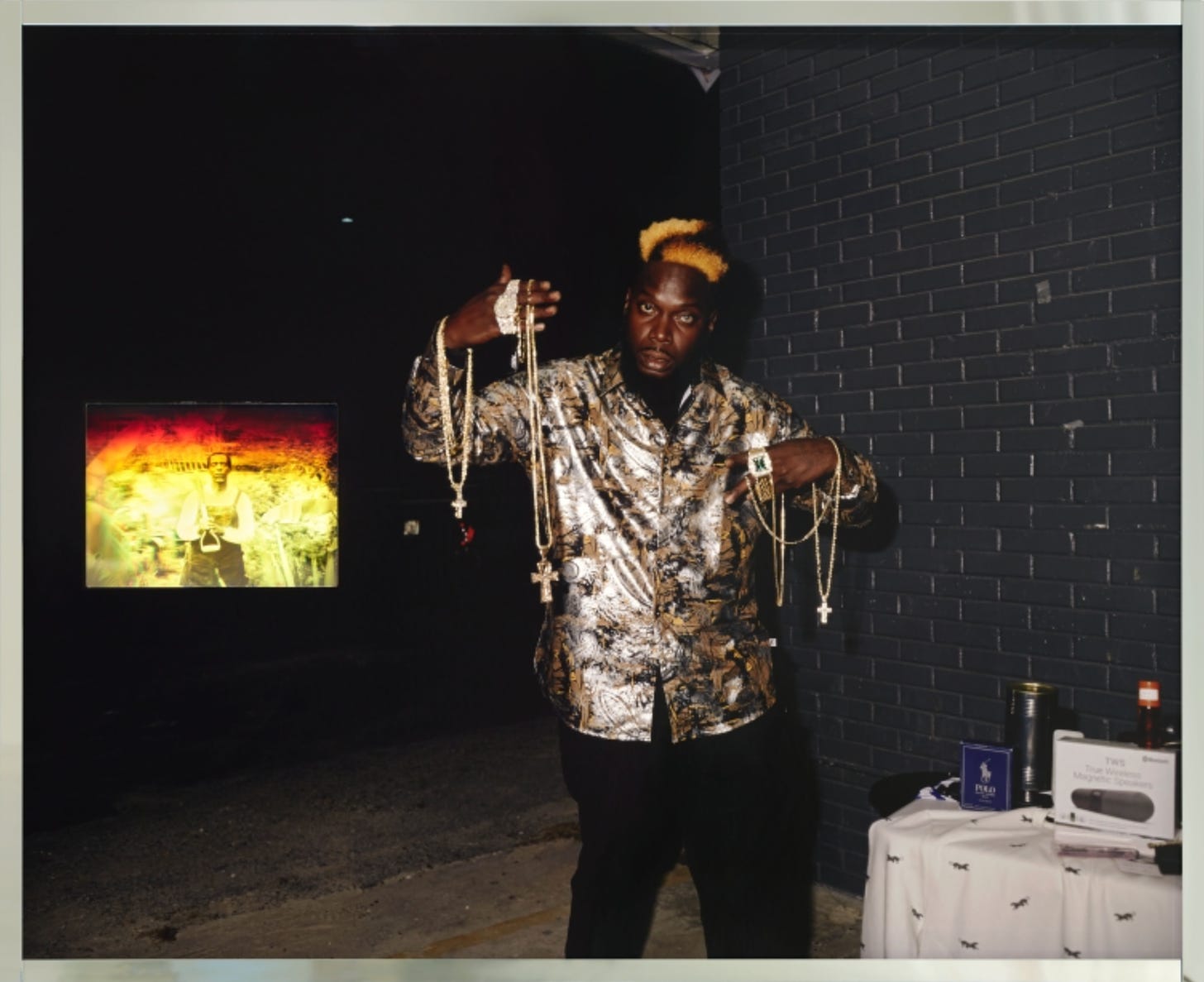Lately, I have had a lot of time to think about politics. Not news, but models, heuristics, data analytics, structures, philosophy, or even the practical stuff like government and policy.
The art of political dissent is so mesmerizing to me.
Political dissent is a dissatisfaction with or opposition to the policies of a governing body. Expressions of dissent may take forms from vocal disagreement to civil disobedience to the use of violence.
I took a break from the philosophy to spend time with the poetry. Isn’t there a more raw form of expression available for dissent other than rhetoric, protests, or violence?
I have considered the work of many artists in the museum, alone, with my headphones on, as I walk. What is the artist trying to tell me? Why am I shocked by this painting or sculpture? Are the artist saying more through their art than they could say on television, in the media, or on the radio?
Is the meaning obvious? Is the piece to be taken literally? Is there something more profound, or is it simple? I have no idea. That is what is so fascinating. To some degree, my perception and understanding of the world can frame my experience with art. Potentially, the above work evokes something for me that is correlated with shock, and for someone else, their experience may be different.
Black Gold (“Earth turns to gold, in the hands of the wise,” Rumi) (2021) from Deanna Lawsons exhibit, Centropy at the Solomon R. Guggenheim Museum, New York.
Deanna Lawson’s work was on the top floor of the Guggenheim when I was there last year. Her photography is so vivid. I stood in front of the photograph above for at least 15 minutes. Look at the smaller photo on the left. What dots are there to connect? Is this highlighting a specific part of the culture? Is there a more profound message here? Are we looking at an idea of the same man, one involved in the street hustle culture, and another who is an enslaved person on a plantation?
Thinking about Deanna’s work still makes me emotional. She has this way of showing culture in a pure, unadulterated, in-your-face form.
Back to the Poetry:
So, I wanted to see what political dissent looked like through poetry. Art can be highly abstract, but it’s physical; it’s visual. Poetry is text and its language. Through a bit of research and reasoning, I came up with an idea. If I wanted to express my politics more authentically, I could try poetry.
But I am no poet
So I searched for poetry.
Political poetry brings together politics and poetry. Political poetry connects to people’s feelings, and politics connect to current events. Poetry can also make political references and have real effects on the perception of politics.
One poem sent to me is by a highly regarded man named Amiri Baraka. The poem is called Black Art, and it was written shortly after the assassination of Malcolm X in 1965. You can read the poem in the link on the poem’s title. This work is credited for inspiring what would be known as the Black Arts Movement (BAM.)
I read this poem for the first time a few days ago. Poetry is different than artworks on canvases, for me. The feelings emerge as the words become clear or I start to make connections. Nothing is as good as the first time. But Amiri Baraka spoke a form of truth where you don’t know if he’s serious or talking satirically. You don’t know if he means what he’s saying or only parts of it. Think about the period he’s responding to - the institutions he feels have harmed him, his family, or people.
Satire is a genre of the visual, literary, and performing arts, usually in the form of fiction and less frequently non-fiction, in which vices, follies, abuses, and shortcomings are held up to ridicule, often with the intent of shaming or exposing the perceived flaws of individuals, corporations, government, or society itself into improvement. Although satire is usually meant to be humorous, its greater purpose is often constructive social criticism, using wit to draw attention to particular and broader societal issues.
Here is an excerpt from Black Art.
Poems are bullshit unless they are
Teeth or trees or lemons piled
On a step. Or black ladies dying
Of men leaving nickel hearts
Beating them down. Fuck poems
And they are useful, would they shoot
Come at you, love what you are
Breathe like wreslters, or shudder
There is so much here. Would I have to know more to begin to interpret? I was hoping you could read the rest of the poem and let me know what you think in the comments.
Truth is the property of being in accord with fact or reality. In everyday language, truth is typically ascribed to things that aim to represent reality or otherwise correspond to it, such as beliefs, propositions, and declarative sentences.
Truth is usually held to be the opposite of falsehood. The concept of truth is discussed and debated in various contexts, including philosophy, art, theology, and science.
So what is truth? It’s an age-old debate and not one that I intended to engage in at this moment. But I wanted to leave you with something to ponder and give you some insight into what is on my mind.
Or, more accurately, what I am pondering in the vein of political dissent as I continue to formulate and express my views.





